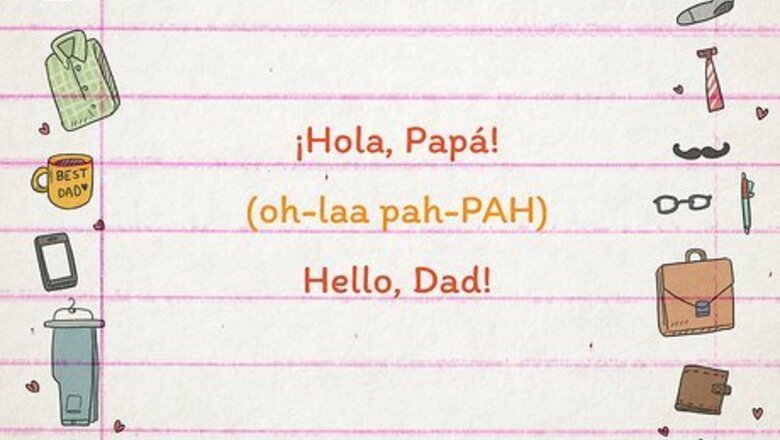
views
- Papá means “dad,” while padre means “father.”
- Papi translates to “daddy,” and can be used to address a father or romantic partner.
- Jefe, tata, apá, viejo, and papaíto are all common slang words for “dad.”
How do you say “dad” or “father” in Spanish?
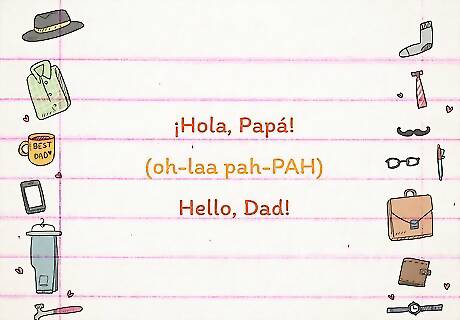
Papá (pah-PAH): DadPapá is a common way to say “dad” in nearly all Spanish-speaking countries and regions. Just don’t forget the accented á at the end—in Spanish, “papa” (also pronounced pah-pah) means “potato.” When talking to your father, make sure to put an extra emphasis on the second “pah” of “papá.” Example: “¡Hola, Papá!” (oh-laa pah-PAH) means “Hello, Dad!” In Puerto Rico, “papá” is a slang word for “man” or “dude.” In Chile, “papa” (without the accented á) can be a slang word for a baby’s bottle or a hole in a sock.
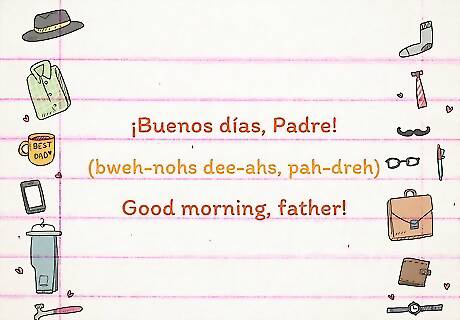
Padre (pah-dreh): FatherPadre officially translates to mean “father,” and is the equivalent of “madre” (mah-dreh), which means “mother.” “Padre” has a more formal tone to it—in fact, the Spanish version of the Lord’s Prayer refers to God as “Padre nuestro” (paa-dray nwehs-troh), or “our Father.” Example: “¡Buenos días, Padre!” (bweh-nohs dee-ahs, pah-dreh) means “Good morning, father!” In Mexico, “padre” is actually a slang word for “cool,” “nice,” or “good.” If someone says “Qué padre” (keh pah-dreh), they’re actually saying “how nice” or “how cool” rather than “how father.”
How do you say “daddy” in Spanish?
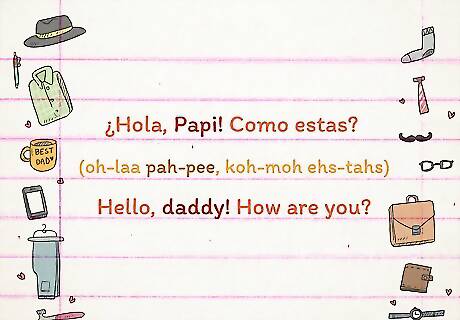
Papi (pah-pee) is the Spanish word for “daddy.” Many Spanish-speaking children use “papi” as an affectionate term for their dads, while Spanish-speaking adults even use “papi” as a cute nickname for their partner. In either case, “papi” translates to “daddy.” Example: “¿Hola, Papi! Como estas?” (oh-laa pah-pee, koh-moh ehs-tahs) means “Hello, daddy! How are you?”
Other Ways to Say “Dad”
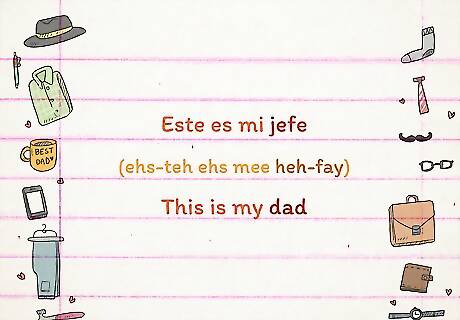
Jefe (heh-fay): Dad“Jefe” officially translates to “boss” or “chief,” but is a slang word for “dad” in Latin American countries like Mexico and Venezuela. In this slang variation, “jefa” (heh-fah) means “mom” and “jefes” (heh-fehs) means “parents” or “folks.” Example: “Este es mi jefe” (ehs-teh ehs mee heh-fay) means “This is my dad.”
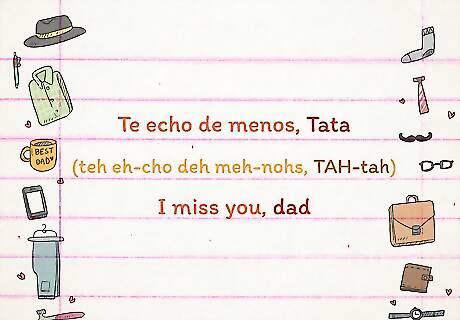
Tata (TAH-tah): Pops/Dad“Tata” is a popular slang word for “dad” in several Latin American countries. In Mexico specifically, “tata” can be slang for “grandpa.” Some Spanish speakers also use “taita” (tay-tah), which translates to “daddy” or “dad.” Example: “Te echo de menos, Tata” (teh eh-cho deh meh-nohs, TAH-tah) means “I miss you, dad.” In Spanish-speaking parts of the United States, “tata” means “pop.” In Spain, “tata” translates to “babysitter” or “nanny.”
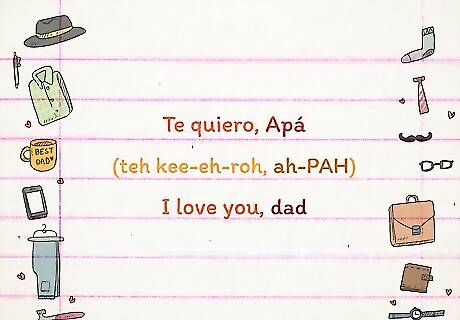
Apá (ah-PAH): Pops/Dad/FatherApá is just what it looks like—“papá” without the “p” at the beginning. It’s a fairly common slang term in parts of Central America, like Mexico, as well as Spanish-speaking parts of the United States. Depending on the context, it can translate to “dad,” “pop,” or “father.” Example: “Te quiero, Apá” (teh kee-eh-roh, ah-PAH) means “I love you, dad.”
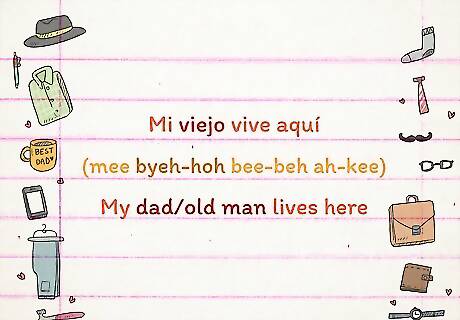
Viejo (byeh-hoh): Dad“Viejo” literally means “old man,” but is a fairly common slang term for “dad” in parts of Latin America. In some contexts, it can also be used to refer to a person’s husband. Example: “Mi viejo vive aquí” (mee byeh-hoh bee-beh ah-kee) means “My dad/old man lives here.” On a similar note, “vieja” (byeh-hah) is a Latin American slang word for “mom.” “Viejo” can also mean “granddad.”
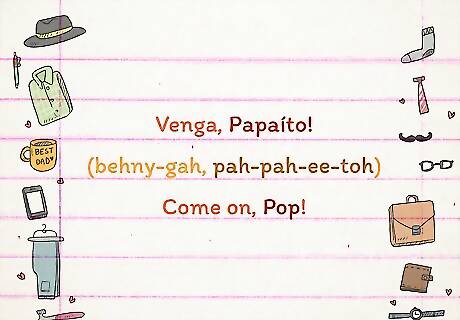
Papaíto (pah-pah-ee-toh): Daddy/Pop“Papaíto” is a fairly common slang word for “Daddy” in Spain. In Spanish-speaking parts of the United States, it can also translate to “Pop.” Example: “Venga, Papaíto!” (behny-gah, pah-pah-ee-toh) means “Come on, Pop!”
Words for Fatherly Relatives
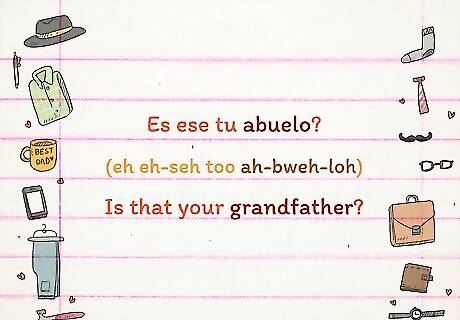
Abuelo (ah-bweh-loh): Grandfather/Grandpa“Abuelo” is the most common way to say “grandfather” or “grandpa” in Spanish. If you’d like to be extra sweet and affectionate, say “abuelito” (ah-bweh-lee-toh) instead. Example: “Es ese tu abuelo?” (eh eh-seh too ah-bweh-loh) means “Is that your grandfather?” “Yayo” (yah-yoh) and “tito” (tee-toh) are other popular words for “grandpa,” especially in Mexico and Spain. Similar to “abuelo,” “abuela” (ah-bweh-lah) is the Spanish word for “grandma,” with “abuelita” (ah-bweh-lee-tah) being a more affectionate term that you can use.
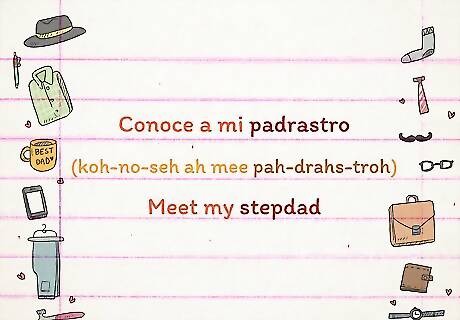
Padrastro (pah-drahs-troh): StepfatherThe Spanish words for “stepfather” and “stepmother” follow the same pattern as “padre” (pah-dreh) and “madre” (mah-dreh). Just like padre, padrastro translates to “stepfather”; like madre, madrastra means “stepmother.” Example: “Conoce a mi padrastro” (koh-no-seh ah mee pah-drahs-troh) means “Meet my stepdad.”
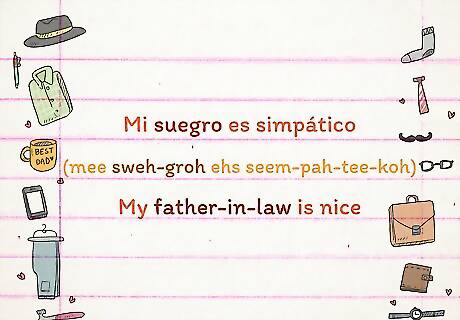
Suegro (sweh-groh): Father-in-law“Suegro” can be used to address a person’s father-in-law directly, or as a way to refer to them indirectly in a conversation. To say “mother-in-law,” say “suegra” (sweh-grah) instead. Example: “Mi suegro es simpático” (mee sweh-groh ehs seem-pah-tee-koh) means “My father-in-law is nice.”











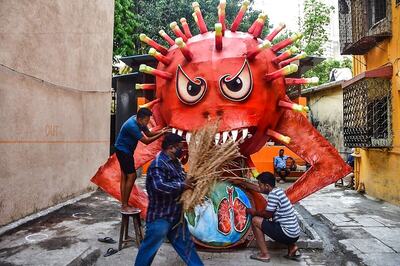




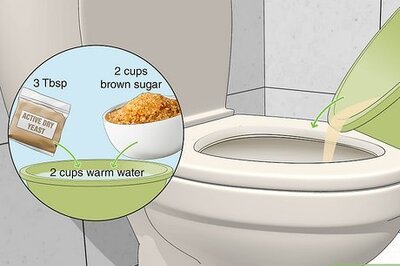



Comments
0 comment